Dear WesleyNexus Colleague:
As I write, the U.S. is celebrating the 50th anniversary of the Apollo 11 moon landing. Tens of thousands of people are converging on the National Mall this week for festivities commemorating this groundbreaking moment in human history. The moon landing, and our fascination with it half a century later, is a triumph for science and technology, but it also witnesses to the power of human curiosity, wonder, and the drive to explore our world to ever farther reaches.
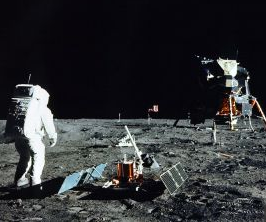
In Matthew 28, Jesus commands us, “Go out and train everyone you meet, far and near, in this way of life, marking them by baptism in the threefold name: Father, Son, and Holy Spirit. Then instruct them in the practice of all I have commanded you. I’ll be with you as you do this, day after day after day, right up to the end of the age.” I’m stating the obvious—we are charged with making disciples in an age of science and technology. What may not be so obvious is how this commission should influence our worship, evangelism, and discipleship. Decades of decline in church membership, a rise in the proportion of persons claiming no religious affiliation, and an abundance of data on the exodus of young people from the church are all indicators that the church needs to ‘step up its game.’ Missionally speaking, we need to be more intentional in helping people understand how following the teachings of a man who lived 2,000 years ago makes any sense in a world shaped by science and technology.
Why does this matter? Because this week’s news, like every week, draws a stark contrast between our scientific and technological achievements and our continued human struggle to see every person as a sacred, beloved child of God; to replace selfishness and greed with compassion and charity; to learn material contentment and care for all of God’s creation; and to overcome our innate tribalism with the radical love of Christ. And, so, we press on for the work of Christ. This newsletter issue, like every other, highlights some of the most current connection points between science, technology, and Christian faith
The work of WesleyNexus is to bring you the best resources at the intersection of science and Christian faith, to promote the most reasoned and Christ-informed dialogue, that together we might make a difference in a world that is increasingly shaped by science and technology. We kindly ask your financial support to help us continue this important work. WesleyNexus is a 501(c)(3) charitable, educational organization, and we will acknowledge all gifts from individuals for tax reporting purposes. Thanks in advance for your support.
Blessings,
Jennifer, Maynard, and the rest of the WesleyNexus team
Discovery & Faith Seeks Churches to Pilot Its New Curricula in Fall 2019
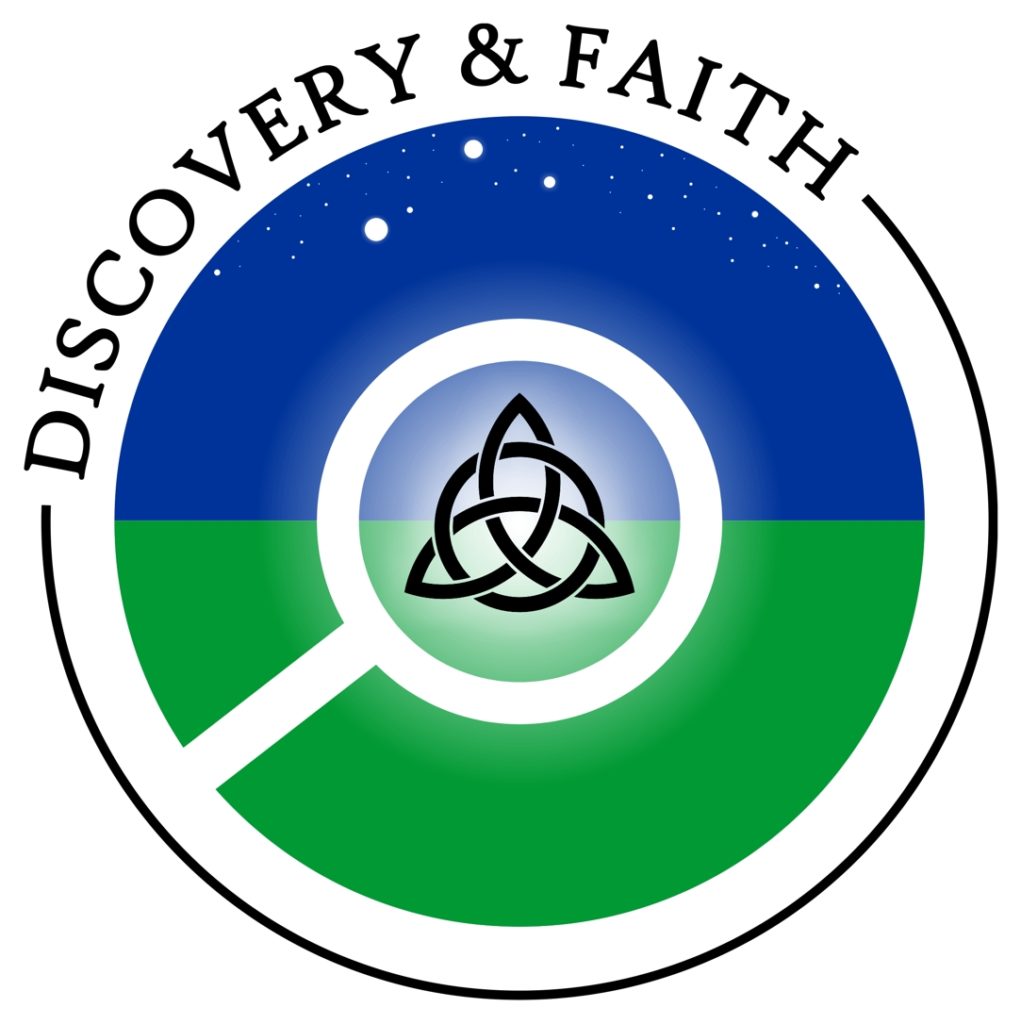
Discovery & Faith is a ministry initiative launched by WesleyNexus in 2017 to provide resources to help the next generation experience harmony between science and Christian faith. It is seeking children’s ministry partners to pilot its new curricula.
“Exploring God’s World & Word: Genesis 1” is a six-week unit for children PreK through sixth grade that brings hands-on science alongside the first Creation story in the Bible for a side-by-side, science-and-faith learning experience.
“Foundations” is a supplemental confirmation curriculum that helps confirmands construct the intellectual foundations that help them more fully understand the practice of Christian faith, particularly as it relates to a world shaped by science and reason. It uses hands-on/minds-on activities to explore:
- Belief, knowing, and trust
- Belief in God
- How to read/interpret the Bible
- The relationship between science and faith
- God the Creator
- Genesis and evolution including perspectives on Adam
- Reason, history, and the story of Jesus and the resurrection
- What science tells us about the practice of faith has positive impacts on physical and mental health and well-being
If you are interested in participating in our pilot program, please contact Jennifer Secki Shields via connect@discoveryandfaith.org
Dr. Gary Sherman Challenges the Status Quo on GMOs and Food Security at recent IRAS Conference
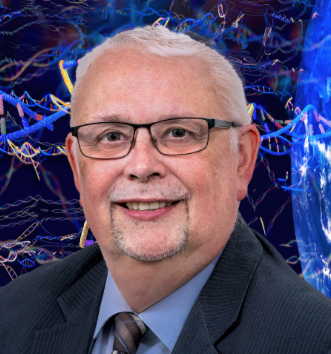
Among the plenary speakers at the recent IRAS Conference on Star Island, Dr. Gary Sherman, United Methodist layperson and a long-time friend and benefactor of WesleyNexus, blew up some of the conventional presuppositions of those in attendance in a talk titled, “After all, it’s only food!” The 65th Summer Conference sponsored by the Institute on Religion in an Age of Science – known to many as the Star Island Conference – took place June 22-29, 2019 off the coast of Portsmouth, New Hampshire.
Dr. Sherman (BS, MS, BSVM, DVM, PhD) most recently served as Associate Vice President for Research & Innovation Partnerships at Virginia Polytechnic & State University in Blacksburg, VA. Immediately prior to his appointment at Virginia Tech, Gary served as National Program Leader in Veterinary Science, Medicine & Agrosecurity at the USDA-National Institute of Food & Agriculture (NIFA), the Institute of Food Production & Sustainability (IFPS), Division of Animal Systems (DAS) in Washington, D.C. This long period of service with USDA has provided Gary with a perspective on food production and agrosecurity that few people – even those of us who routinely might be described as “well-educated” – ever consider. In the conference evaluations, Dr. Sherman received the highest level of plaudits among the scientists and ethicists on the program.
All of the plenary speakers at the Star Island Conference addressed a particular aspect of the overall theme, “The CRISPR Apple on the Tree of Knowledge: Bioengineering, Gene Editing and the Human Future.” CRISPR is a family of DNA sequences found within the genomes of prokaryotic organisms such as bacteria and archaea. These sequences are derived from DNA fragments from viruses that have previously infected the prokaryote and are used to detect and destroy DNA from similar viruses during subsequent infections. The CRISPR-CAS9 technology is rapidly opening up an entirely new frontier in biology and medicine, becoming a routine procedure in somatic medicine. Dr. Sherman showed how comparable techniques in plant production might be the only option we have available for feeding the planet with an exploding population in the years ahead.
Dr. Sherman said that while working at FDA and USDA over the course of 17 years, he heard the refrain, “After all, it’s only food!” (AAIOF), all too often from colleagues ranging from support staff to the Secretary of Agriculture and the FDA Commissioner. The remark often is uttered in dismay, annoyance, or exasperation about certain socio-political realities impacting national and global food and agriculture production, both challenges and obstacles. AAIOF is uttered, for example, when fear rather than reason leads many in modern American society to reflexively lash out, often ferociously, against ever-improving gene-based food production technologies that every major first-world country’s Academy of Sciences forcefully argues is not only safe, but essential to help sustainably feed two billion more people by 2050. Consider the unimaginable magnitude of the challenge that MUST be met by the global agricultural science community. We must double global food production in just 30 years with: 1) no more (in fact declining) arable land; 2) no more (in fact declining) fresh water; 3) rapidly growing competition for resources by the burgeoning biofuels industry; 4) a rapidly changing climate; and 5) near-flat federal funding in support of innovative and transformational agricultural research and development so desperately needed to meet and sustain future global food needs. To meet this immense challenge, humanity cannot afford to ‘Shy from kittens (i.e., to fear DNA) and cuddle with tigers’ (i.e., embrace anti-scientific movements that exacerbate food insecurity). In his talk, Dr. Sherman offered information that many are unaware of, specifically about much-feared and much-maligned GMO foods. The intention was to reduce the widening perception gap that exists between the scientific community and those less informed about the practical realities, risks, and benefits associated with development and application of food and agricultural genetic technologies. In fact, it is almost indisputable that GMO food production is the only option we have for feeding the planet and perhaps avoiding wide international conflict when vast numbers of people face the alternative of starving. Many persons at the IRAS conference said they wanted to learn more about this.
Celebrating the Fiftieth Anniversary of the Moon Landing & the Apollo Mission
Tens of thousands of people gathered on the National Mall in downtown Washington, D.C., for a spectacular commemoration that turned the 555-foot-tall Washington Monument into a towering movie screen. Local radio station WTOP reports on the event here with video replay.
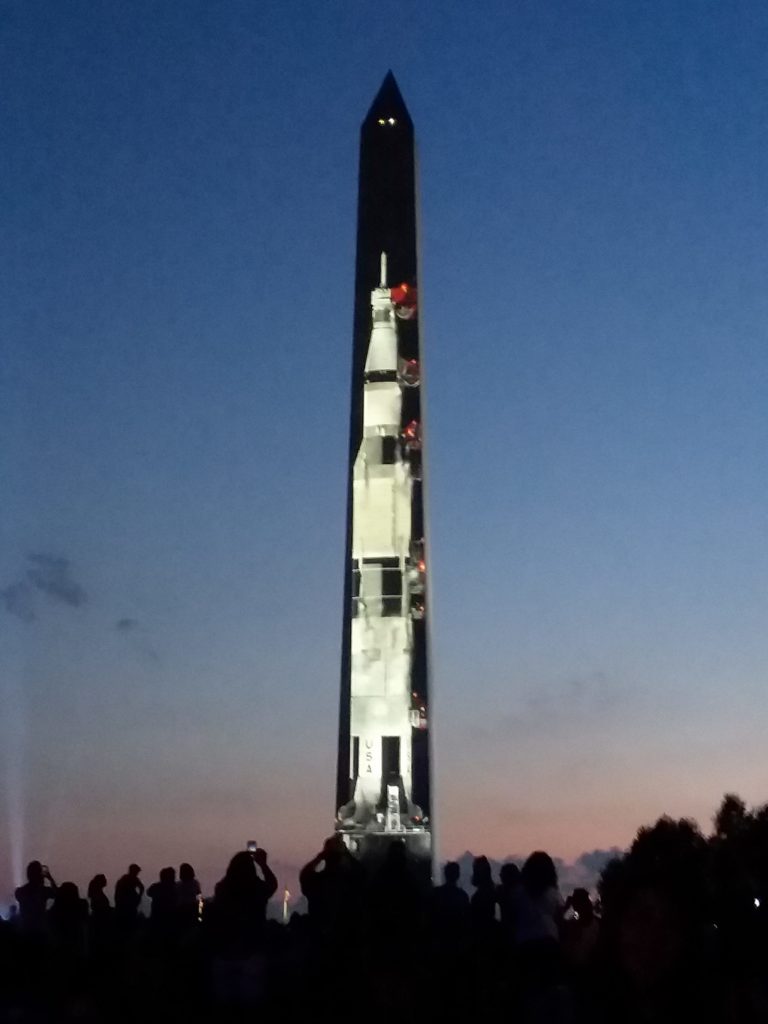
But, the historic moon landing was preceded by the work of 400,000 people that made it possible, including the Apollo 8 mission. Apollo 8 was the first human spaceflight mission to leave Earth and voyage to another celestial body. On Christmas Eve, 1968, its crew of Bill Anders, Jim Lovell, and Frank Borman broadcast a reading of Genesis 1 back to Earth from their lunar orbit. Listen to the original broadcast here.
Animal Suffering: God & Pain in the Evolutionary Story
It’s an age-old question in Christianity: if God is so good, how can there be so much suffering? Accepting an evolutionary understanding of God’s creation puts God firmly on the hook for a world in which all creatures suffer, not just humans. For many, this issue becomes a stumbling block to the practice of Christian faith.
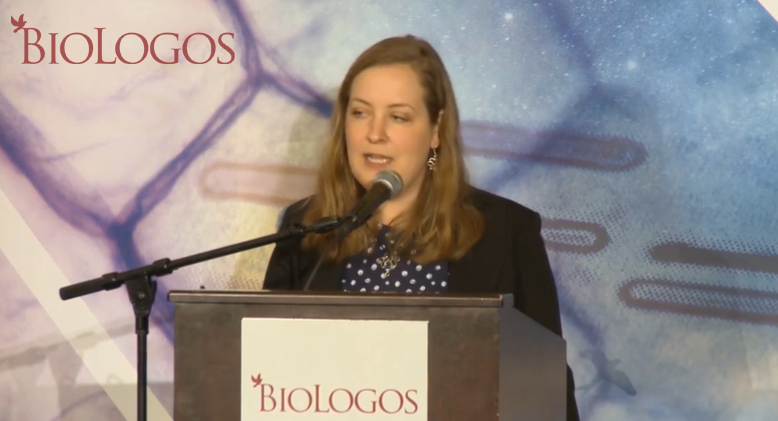
Bethany Sollereder, research coordinator at the University of Oxford, discussed the theology concerning evolution and animal suffering at the 2019 BioLogos Conference in Baltimore, Maryland. You can watch her plenary session here.
How to Understand the Universe When You’re Stuck Inside of It by Amanda Gefter
This month our initial reflection presents us all with the challenge of sharing the good news of Jesus’ to a generation (both in the church and outside the church) that seems to be stuck in age-old patterns of greed and tribal identity that has not changed much over the millennium. At the same time, we celebrate the accomplishments of the multitude of scientists, engineers and astronauts who worked on Apollo moon landing. We recognize that on the perimeter of our experience new possibilities exist and that new ways of seeing and living can be developed. In “How to Understand the Universe When You’re Stuck Inside” Amanda Gefter interviews Lee Smolin, one of the founding faculty members of Princeton’s Perimeter Institute. Gefter presents physicist Smolin as a scientist on the edge, who’s theory focuses not on the properties of things that are but instead on the “causal relations among things that happen”. Instead of trying to get a macro view from the outside, Smolin’s work tries to see the universe from within as “ensembles” of views, where the universe and it’s components are inherently related. His perspective is one steeped in the understanding of both physics and philosophy and borrows from a wide range of other disciplines as well. Within his perimeter point-of-view, new insights into our universe may be uncovered. To move forward in physics and in faith one may need to change the point of view. The article can be found here.
Two Conference taking place even now.

The 2019 Annual Meeting of the American Scientific Affiliation (ASA) is “Exploring Creation” and us being hosted by Wheaton College in Wheaton, Illinois, west of Chicago. The American Scientific Affiliation was founded in 1941 as an international network of Christians in the sciences.

The International Society on Science & Religion (ISSR) is holding a conference at Eynsham Hall near Oxford in the United Kingdom on July 21-24, on the topic ‘Evolution, Religion and Social Bonding’. There is a strong set of invited speakers, and the conference will include presentations from ISSR’s current grant-funded project on Religion and the Social Brain.
None of us from WesleyNexus are in attendance at these conferences being staged by our collaborative organizations, but we hope that in our next newsletter we will have a report include from each of these sessions.
